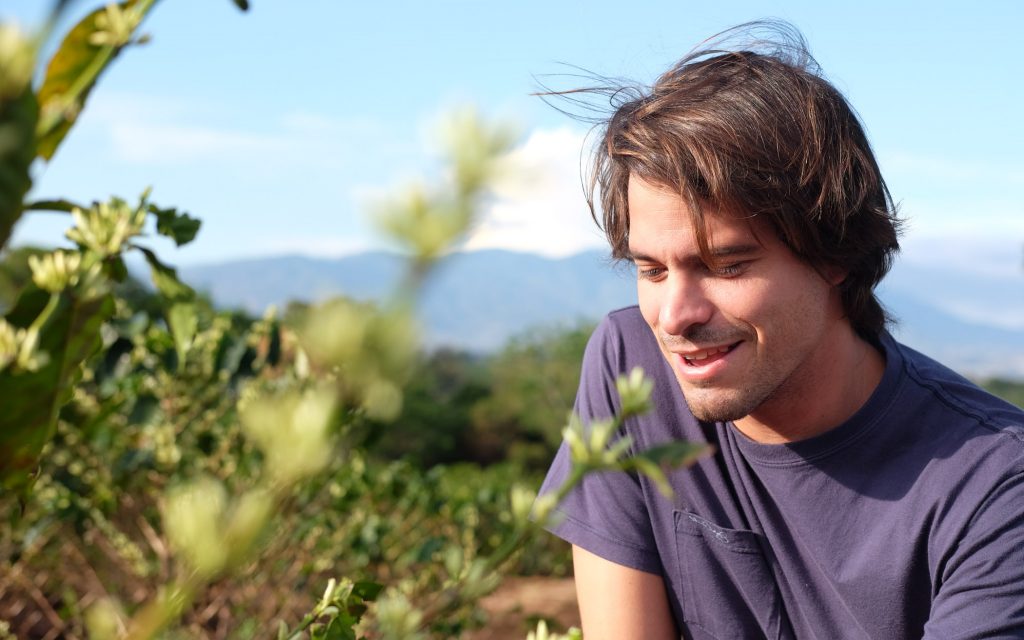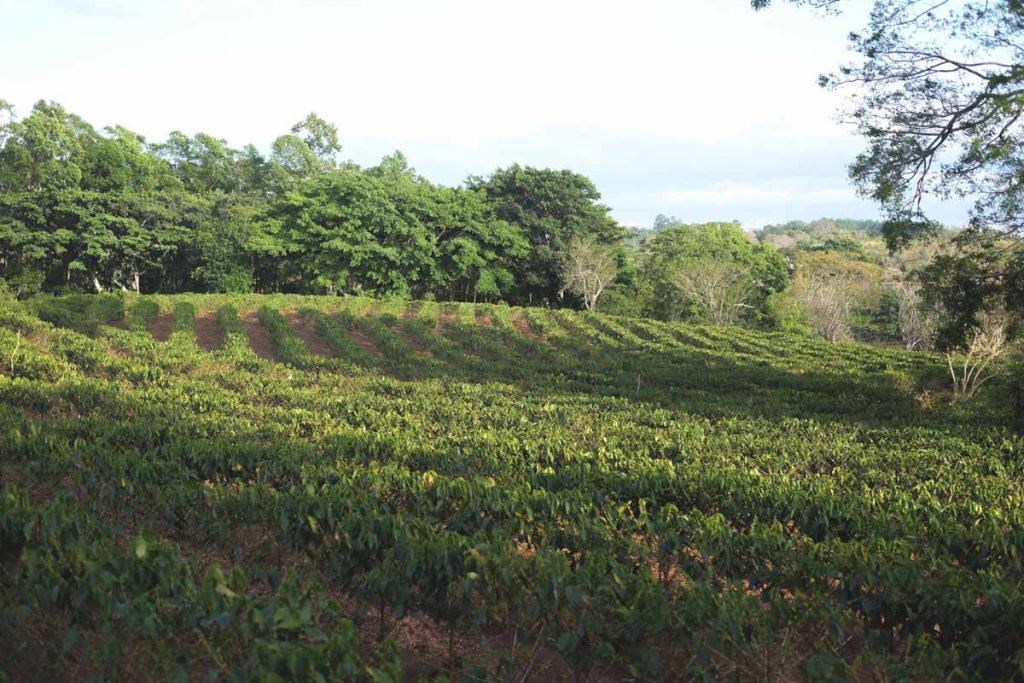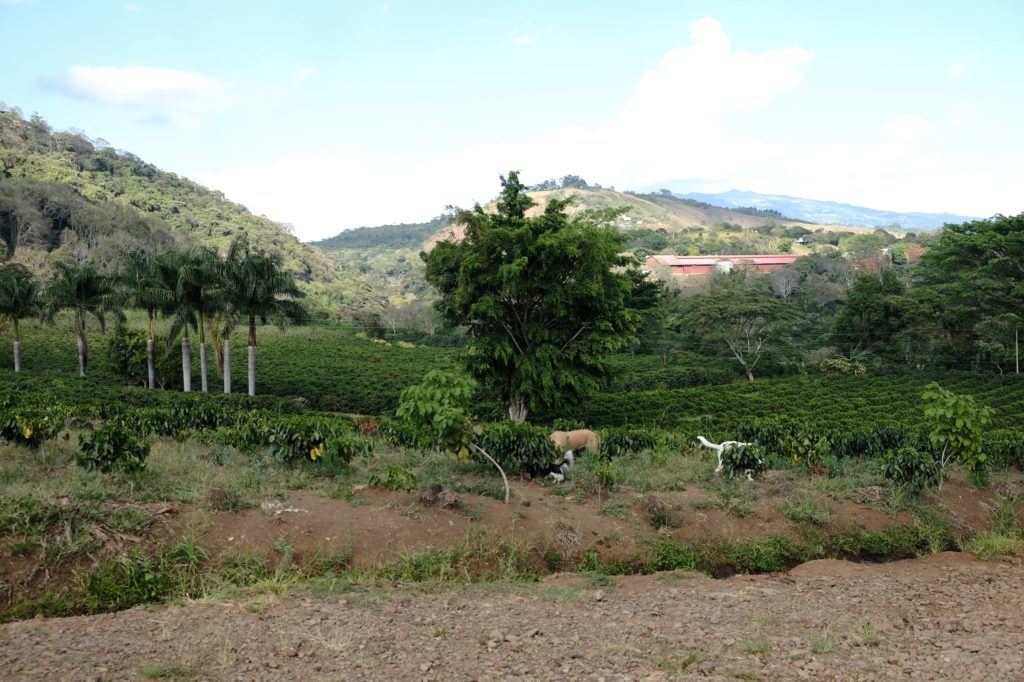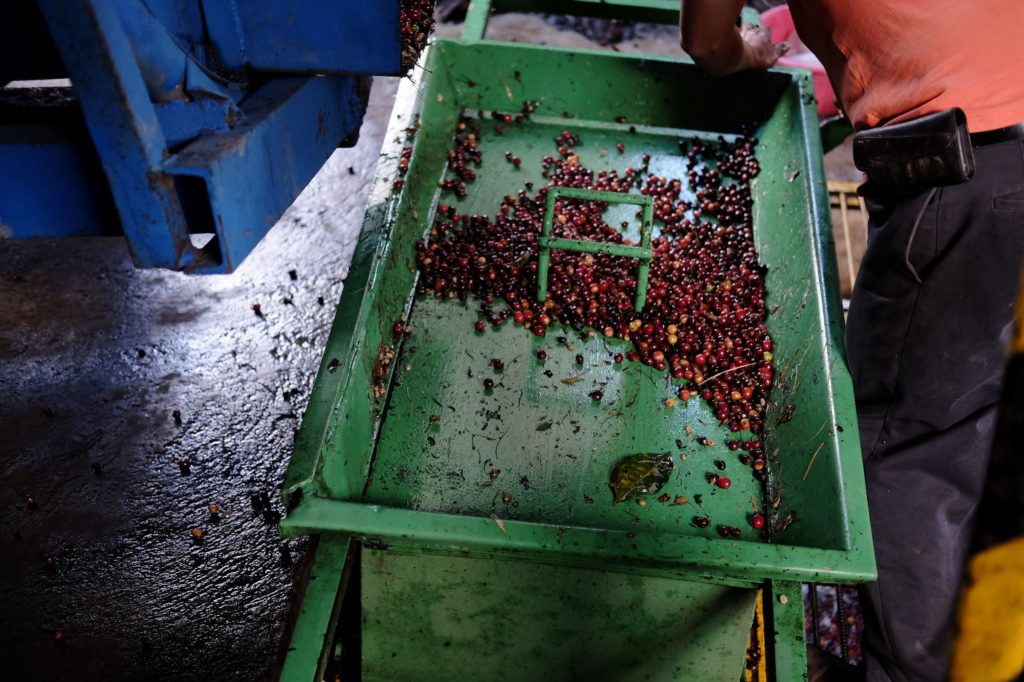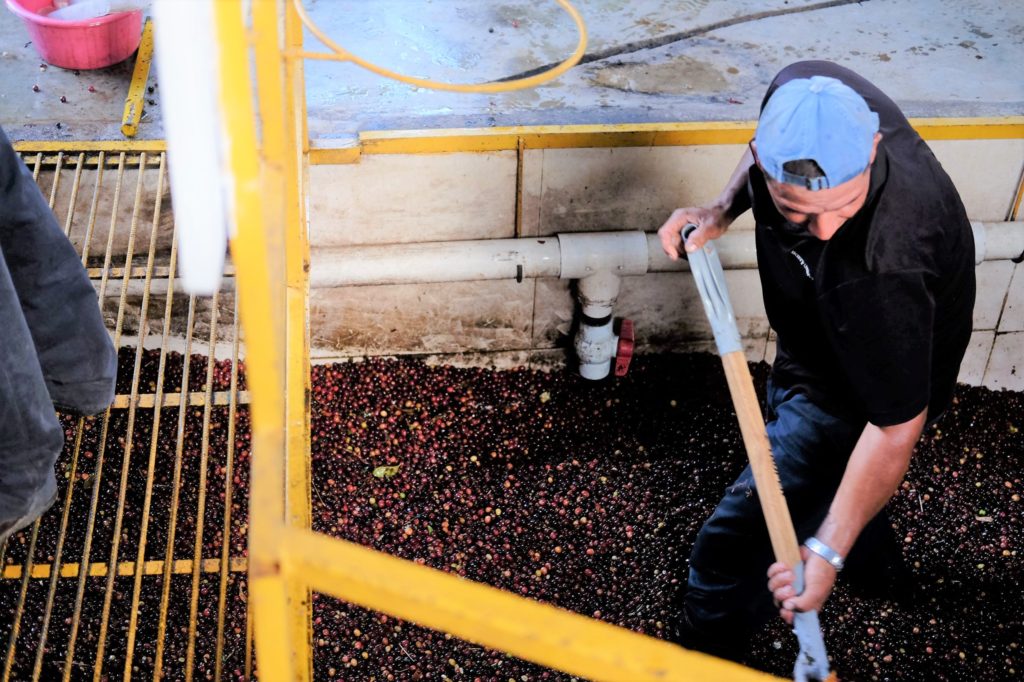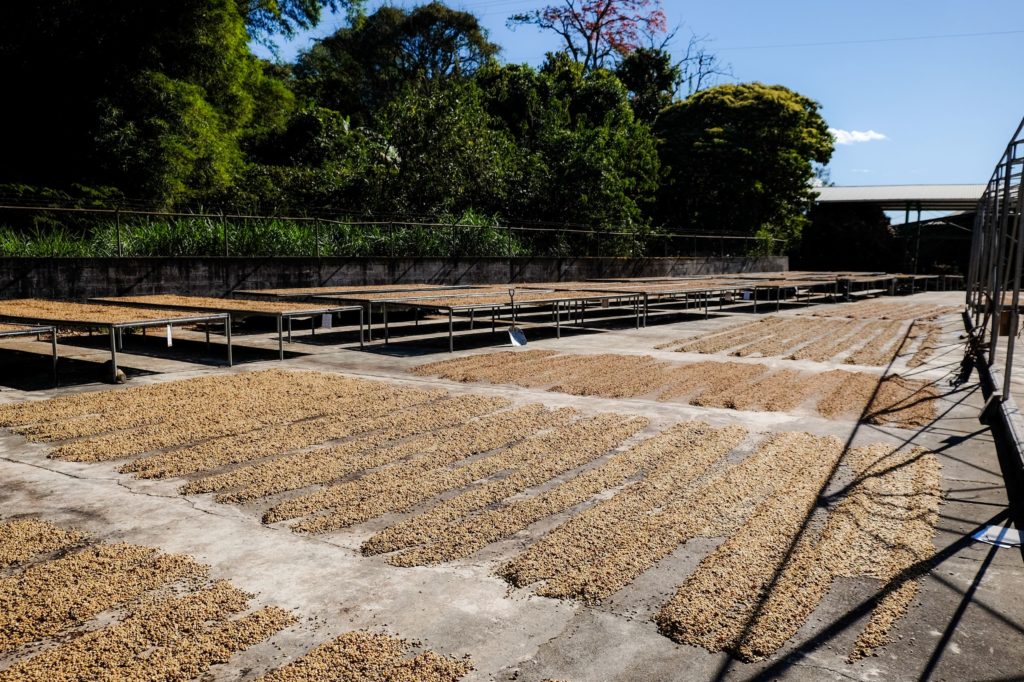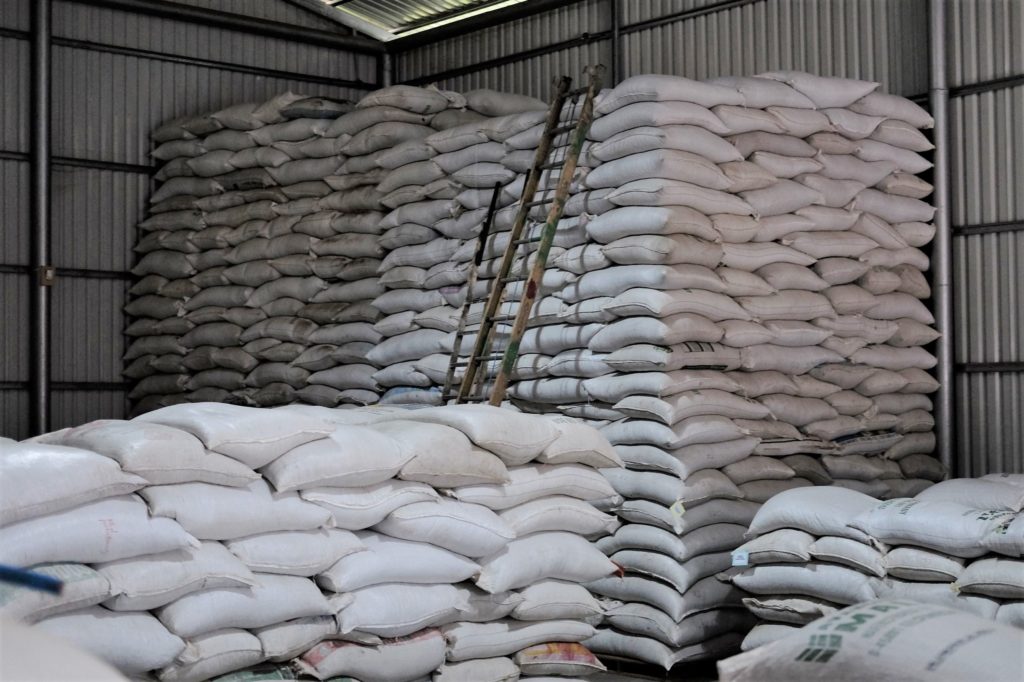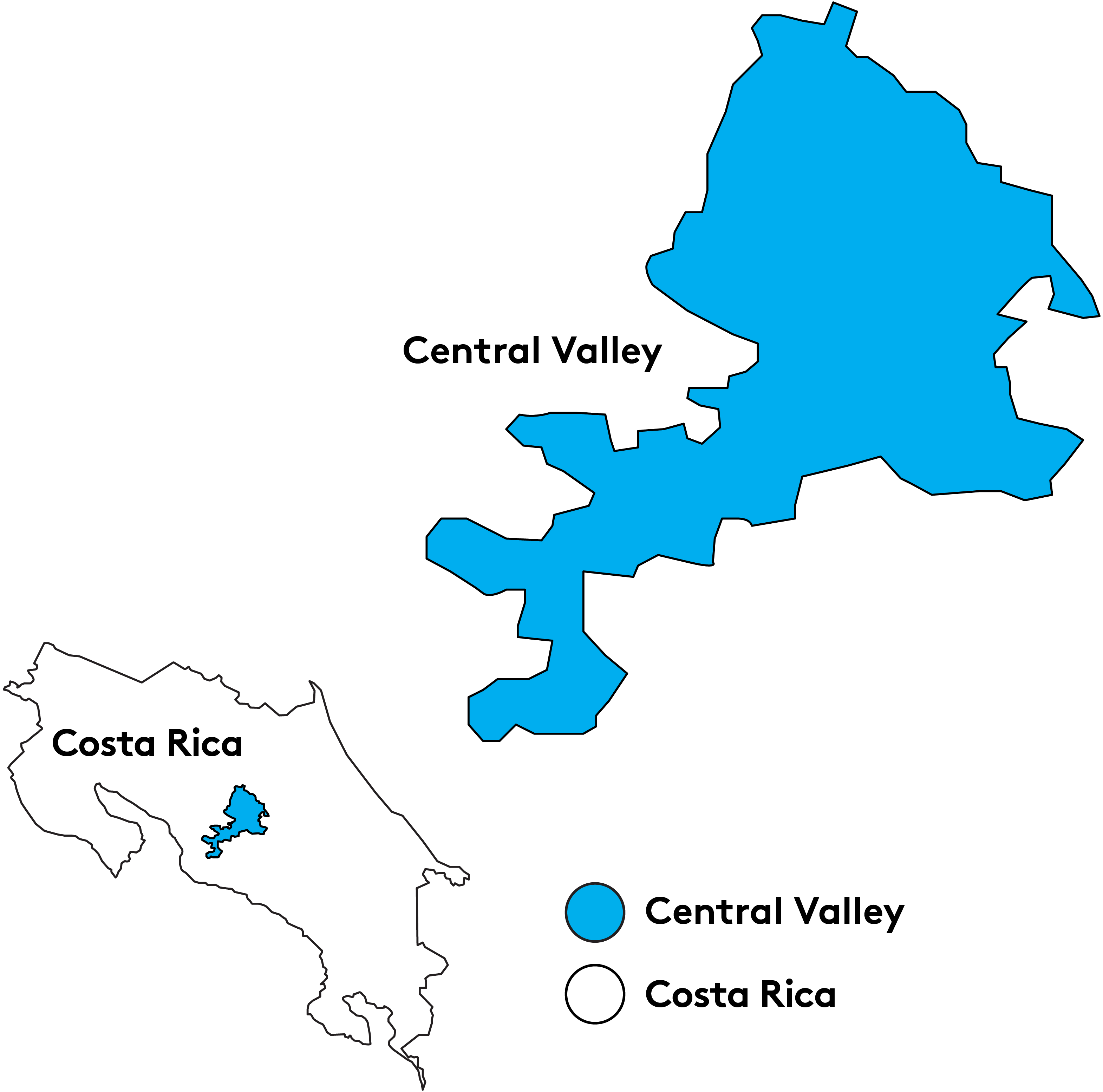Hacienda Sonora is a family farm located in the Central Valley of Costa Rica at the foot of the Poas Volcano in Carrillo, Alajuela. Alberto Guardia took the farm over in the 1970’s as the fourth generation of coffee producers in the family. He planted coffee over the majority of the land, making coffee production the main source of income for the farm.
In 1999 Alberto faced historically low coffee prices along with other producers of the time. He invested in a mill for the estate so that he could maximize the quality of his coffee. This shift to processing his own coffee led to him becoming a pioneer in alternative processing techniques for the area, implementing Honey and Natural processes into his production. The farm’s micromill sits at the heart of Hacienda Sonora next to a 150 year old, fully preserved traditional sugarcane press called a trapiche. Today, all coffee from Sonora is processed using Honey or Natural methods to obtain distinct sweetness and enhanced fruit notes, highlighting the range of cup profiles resulting from the different varieties grown on the farm.
In 2011, Alberto’s son Diego joined the operation as co-manager. Hacienda Sonora Estate has been in the family for more than a century now, and Diego is now the fifth generation of coffee producers in his family.
The farm covers approximately 100 hectares of land, including 65 hectares of shaded coffee and 35 hectares of wild forest reserve. Coffee is grown here surrounded by diverse trees and other vegetation, providing excellent conditions for production and improving the chemistry of the already rich volcanic soil. Thanks to the diverse ecosystem at Sonora, many species of birds and animals call the farm their natural habitat.
Alberto and Diego carry on the family’s long history of caring for the environment at Hacienda Sonora. By using only Natural and Honey processes they reduce water usage and save three gallons of water per pound of coffee that would have been used for Washed processing. 100% of the power consumed by the farm is generated from renewable energy sources on the property, including harvesting power from a freshwater stream using a special turbine called a Pelton Wheel. This energy supplies power to the coffee mill and generates an amount of free electricity for workers living on the farm.
The Guardia family holds Hacienda Sonora to not only high standards for quality coffee and environmental responsibility, but for social responsibility as well. Employees at the farm receive the full benefits of the Costa Rican health insurance program. Hacienda Sonora also provides free living accommodations, including most household utilities, for each worker and their families in the houses on the property.
We’re very proud to continue our relationship with Alberto, Diego, and Hacienda Sonora that began in 2018. Ally Coffee’s coffee buyer for Central America, Bram De Hoog, works only a five minute bike ride from the CECA quality control office and lab where Diego works. Sonora organizes their harvest by day-lot selection, and Bram is able to cup regularly throughout the harvest to find the perfect coffees.
Sonora keeps careful records of harvest volumes, the section of the farm where each lot was grown, and the drying times for each lot. Planning, organizing, and annual adjustments are all part of the team’s regular operations. Their record keeping and communication provides full harvest and processing traceability, noting all of the details of each lot’s journey from the coffee trees to the packaging for export.
This lot of Catuai coffee underwent Natural processing at Hacienda Sonora’s micromill. The Natural process at Sonora is unique in that it completely omits the use of raised drying beds. As part of Sonora’s focus on scalability and efficiency, combined with rigid cupping sessions, Diego found the best quality in drying the coffee cherries on large black sheets made of braided plastic threads known as zaran.
Harvested cherries are first floated with fresh spring water to sort out any defects or impurities that come from the fields. The zaran is laid out on short cut grass fields and coffee cherries are spread out in thin layers. Cherries enjoy direct sunlight from the morning into the afternoon. At the end of each day, the large sheets of zaran are rolled up with a tractor and stacked as a pyramid overnight. Drying takes around two weeks to reach 14% humidity, at which point the coffee is stored in Sonora’s warehouse to rest. Shortly before going through the on-site dry mill, the drying process is finished in dryers known as “guardiolas.” The coffee is finished and prepared for export in Sonora’s dry mill, where it is rigorously sorted for screen size, density, and color using the latest optical technologies.
